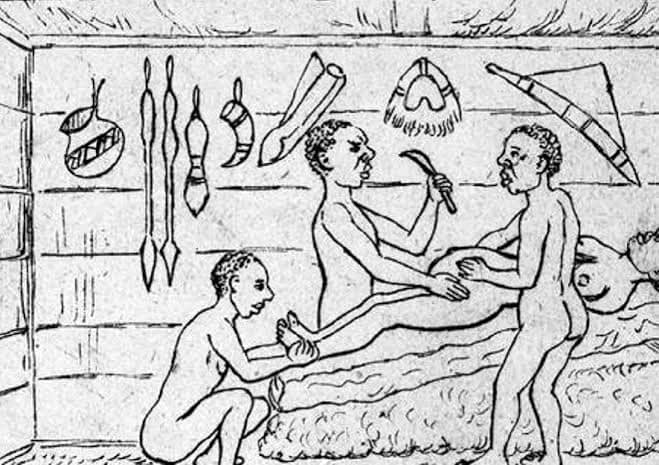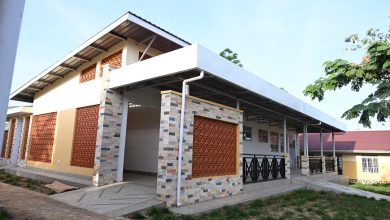CultureLeadershipOutToLunch
#OutToLunch: Colonialism was not benevolence, Africans should agitate for something better

By Denis Jjuuko
More than 60 years after African countries gained independence, some people on social media platforms like X have been arguing that colonialism was better. That colonialists developed Africa and they would wish them to return. It is perhaps an indictment on the African leaders who have failed to use the mass resources at their disposal to develop their countries.
But the call for the return of colonialists ignores many things. First, that colonialists didn’t have any intentions of developing any colonies. It wasn’t some form of benevolence. It was extractive to take any resources at their fancy to feed the industries in Europe. That is why railway lines that agitators of colonial rule cite frequently were only extended to places that had resources they wanted. The Uganda Railways, for example, didn’t extend to Kigezi or Karamoja but to Kilembe where large deposits of copper had been found. In some other places, there was cotton and other agricultural produce.
Colonialists and their sidekicks, the missionaries, may have built schools but that was to train a few people to support their mission. They needed clerks and such other lowly jobs to fully extract the resources Africans have.
Secondly and most importantly, many African nations were not underdeveloped. I will largely reference Buganda which was one of the most advanced societies in Africa before colonialists showed up.
In Buganda and Bunyoro Kitara, caesarean births were very common to help mothers with complicated labour to give birth, using banana wine as anesthesia. Europeans like, Robert Felkin, a medical and missionary explorer (read colonialism agent) who observed this around 1879 in Kahura in current day Uganda were mesmerized that Africans had this kind of technology that saved mothers and their babies. According to some accounts, this was not a common practice in Europe at the time.
Several medical experts existed such as Kasujja, the inverter of fever (or malaria) treatment. Orthopedics existed and still do although the numbers may be dwindling. There are cases even today when these orthopedics using indigenous knowledge have solved challenges ahead of the European university educated ones. Also, amputation was not their solution for every little fracture like it seems to be the norm these days.
In Buganda, there was a clear well streamlined administration process. A constitution existed (ennono) that detailed all cultural and administrative norms and structures. The process of succession for the leaders (kings) was well established and the position of head of administration (Katikkiro or Prime Minister) was in existence. There was a judiciary and treasury among other key offices. Appellant courts existed for those who didn’t agree with certain decisions. Although the buck always stopped with the Kabaka as the supreme leader, the Nnamasole (Kabaka’s mother) had some powers and in certain cases could undo a decision of the Kabaka. She could pardon convicts on death row.
Administrative centres existed up to the village level. They encouraged and many times enforced people to grow food, keep their homesteads clean. Bulangibwansi (community self-help) ensured that communities kept the roads pothole free and water sources were clean and protected. The village raised a child which ensured law and order.
Parliament existed where members discussed issues affecting the kingdom. The members came from all the counties. Deliberations were sometimes intense leading to the rolling of grass on which they sat hence the name Bulange.
Education existed at the time across Africa with elders passing on information from one generation to the next sitting around a fireplace and through internship. Elders trained the young ones and passed on skills to their offspring. That is how people became professionals.
Fishing, brewing, making bark cloth, medicine, hygiene were all professions that people practiced. Each clan that invented something, they became responsible for it. The Musu (edible rat) Clan for example was responsible for hygiene because its member invented the toilet. Mutima (heart) Clan did fishing.
Talking of clans, many preserved the environment and wild species as they were assigned particular responsibilities long before colonialists introduced national parks and conservation centres. Lions, elephants, mudfish, monkeys, pangolins, antelopes and such as other species were protected by their respective clans.
The Baganda never married their relatives or even clan members. One of the main reasons was to protect themselves from hereditary diseases such as sickle cells. To ensure harmony, they also didn’t engage in sexual relations with in-laws. That is why men don’t hug or shake hands with a mother-in-law. Familiarity breeds contempt. A woman also keeps a respectable distance from the father-in-law. Some of the societies that didn’t practice this became extinct.
DNA may be the rage today but the Baganda had long invented it. Child paternity tests were common. Once a child was born, it was taken to the grandparents for naming. At this private function, the ssengas (paternal aunts of the child) subjected it to a DNA test that involved the examination of toes, ears and other features for birthmarks that are common in the family. Sustified that the child belonged to their family, a name would be given. Sometimes, if they were not, a proverb name would be given.
By the time the whites arrived, Kabaka Mwanga had started the Kabaka Lake, a man-made lake project to connect his Mengo Palace to Lake Victoria at Munyonyo. This wasn’t for his personal leisure interests as some people have misrepresented it. It was the hallmark of military strategic thinking. His navy would easily move and protect the kingdom. Without today’s cars and aircraft, the easiest and fastest transport method was water. By the time he was disrupted, the Kabaka’s lake had reached Ndeeba.
There are hundreds of examples we can give to demonstrate that African societies were developed long before colonialism and that it was not the best for most African societies and it wouldn’t be the best today. It disrupted societies that had for millennia created systems that worked for them. It introduced concepts that have led to the destruction we continue to see today. If Africans want something that worked in the past, they may have to blend in what worked before colonialism but not a return to theft of resources, divide and rule and all the shenanigans of the colonialists.
The writer is a communication and visibility consultant. djjuuko@gmail.com
Illustration from the internet.

All reactions:
9





